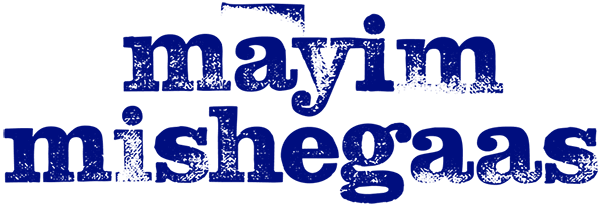
With the Jewish holiday of Yom Kippur approaching, I thought this would be a good time to talk about fasting, especially what it is like to fast when your children are not old enough to do so.
Judaism is a religion that celebrates the body and makes all interactions that the body has with the outside world somehow special. We have blessings when we eat or drink anything, we have a blessing that acknowledges the wonders of our body every time we use the bathroom if we choose to say it, and we designate certain times of the year to allow our physical bodies to take a break from consumption so that we can focus on our spiritual selves more clearly.
There are four minor fasts in Judaism which consist of not eating or drinking anything from sunrise to sunset. These were instituted by a committee of sages a few thousand years ago. There are two 25-hour fasts in Judaism. Yom Kippur is the most commonly known one, as it is celebrated as the final day of the first ten days of the Jewish new year which falls in the autumn and begins with Rosh HaShanah. The other 25-hour fast occurs in the summer to commemorate the destruction of the first and second temples and it is called by the Hebrew date that it falls on, Tisha B’Av (the ninth day of the month of Av).
In traditional Judaism, you are responsible to begin fasting when you enter Jewish adulthood which (age of 13 for boys and age 12 for girls, typically). The purpose of fasting is not to suffer or put your life in danger, but rather to focus on mystical and spiritual aspects of the human experience which historically were celebrated with lots of prayer and meditation and hanging around together talking. (According to Jewish tradition, if fasting endangers your life, you are forbidden to fast.)
I have written for Kveller.com about the significance I see in the fasting experience and I often feel very energized and inspired by the body’s ability to survive for a period of time without food or water, but also being able to function. Pregnant women do not need to fast: as a lactation educator counselor, I often get calls from Jewish women who would like to observe fasts but don’t know the rules about fasting and pregnancy and breast-feeding. In these situations, the health of the mother is always the most important thing to consider.
When I was pregnant and breast-feeding I was able to fast and sometimes I modified my fasts in ways that are accepted by Jewish law. When my children were nursing and running around as toddlers tend to do, fasting was a challenge but I was grateful that when my boys would now on fasting days, I could join them.
Now that they are eight and almost 11, fasting presents different challenges. No one naps and they seem to be hungry all the time which requires me to handle food and prepare food for them a lot more than one would like to when they are fasting!
I enjoy the challenges of living a life of religious observance and I want to share the top five things that I think are important when trying to fast with children. I think these pointers could probably apply to any time you are not feeling well and have to take care of other people, though.
- Tone down your activities. Fasting days are not days to get a lot done. The more you do, the more calories you burn and the hungrier you will be. When you fast, don’t also try to clean the attic or sweep up the driveway or do anything strenuous. Especially if you are off of work because you are fasting or not feeling well, take this day or period of time as an opportunity to not do lots of things!
- Do low key things. Think of the fasting day as a rainy day of sorts. Take out books that you and your kids haven’t looked at in a while. Take out a board game you haven’t played in a while. The last time I did a 25-hour fast in the summer, just about the time that a big wave of hunger hit me, my boys and I played a rousing game of Chinese Checkers (sincere apologies if that is an outdated term for the game pictured below!). it was a great distraction and really helped my grumpy hungry feelings pass.
- Be present. Amazing things happen to your body when you are fasting. You basically don’t have to be or use the bathroom at all much past the morning. I am the kind of person typically pees a lot, so it’s kind of nice to have a break from that routine! Amazing things also happen to your mind when you are fasting. Usually around noon or so, my brain stops working as efficiently as it could and I find myself getting confused about things that typically wouldn’t be confusing. That’s an indication to me that I’m trying to do too much with my brain. Fasting is a great time to be really present with your reactions to things since you are operating from a limited perspective by choice.
- Watch your anger meter. When you don’t eat for a long time and especially if you are needing to prepare food for small people and you are needing to attend to solve people’s needs because they just don’t understand that all you want to do is either lay down or eat the entire contents of the refrigerator, you get grumpy and angry. I have found that when I am fasting, because I know cognitively that I am hungry, I get to practice setting aside my anger and finding productive ways to communicate despite it. I know that getting annoyed with my children because they are bickering (which is something that children do) can get really exaggerated when I am under the influence of fasting. The ability to temper my anger in this situation helps me learn how to temper it in other situations where I can’t use my fasting as my excuse. In my opinion, there is always a way to get through a situation without yelling. The ways I do that when I’m fasting help me do that when I’m not fasting too.
I know that there are people who choose not to fast or whose bodies cannot tolerate fasting for medical reasons. I would like to suggest to those people that if they would like to try to experience some of the positive aspects of fasting without completely fasting, eating plain foods and refraining from eating super-fun foods that have lots of sugar and salt or even drinking water instead of juice or soda are some ways to feel the impact of the significance of the day which is a fasting day.
No matter whether you fast or not, I wish everyone a meaningful Yom Kippur. It is always a goal of mine to better appreciate the wonders of our bodies, our minds, and our capacities to tolerate change. I wish that for you too.




 Read More From Mayim
Read More From Mayim
Grok Nation Comment Policy
We welcome thoughtful, grokky comments—keep your negativity and spam to yourself. Please read our Comment Policy before commenting.